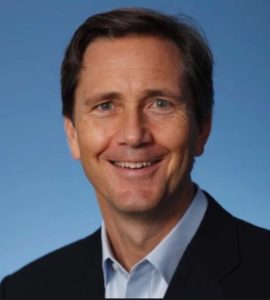
‘The number of men enrolled at colleges has fallen behind women by record levels’
Queensborough Community College in New York announced plans to open a “Male Resource Center” next fall with the aim of increasing the enrollment and retention of college men.
The center will focus primarily, but not exclusively, on black and Latino males, according to Inside Higher Ed. These men make up the college’s “smallest populations” and drop out at the highest rates. The center will provide “academic and financial resources, as well as community.”

“It’s great to see colleges recognizing the problem of getting men to enroll in college and especially helping them to complete their qualifications or degrees,” economist and author Richard Reeves told The College Fix in a Feb. 15 email.
Reeves is a senior fellow at the Brookings Institution in Economic Studies and the co-director of its Center on Children and Families.
“There are almost no institutional efforts directed at men – there’s a Men’s Resource Center at the University of Oregon, and a few places where folks are being hired to work on this issue,” Reeves (pictured) said.
The college already had resources for males, but ‘equity gap’ persisted
Robin Hood, an anti-poverty nonprofit in New York City, partially funded the Queensborough Male Resource Center with a $450K grant, Inside Higher Ed reported.
“The grant, which will be distributed over 18 months, is a result of the University of Southern California’s Equity Institute, an eight-week workshop that examined QCC’s programs geared toward Black and Latino males,” the news outlet stated.
The center will be housed in the student union and offer peer mentors and a full-time employed coordinator, according to Inside Higher Ed.
The college already had a part-time coordinator and several peer mentors for its male students, but there was still an “equity gap” that needed to be addressed, college President Christine Mangino told Inside Higher Ed.
Administrators are focused on “what [they] do to make this campus be somewhere students want to be, and when they want to be there, because they’re engaged socially, then that’s how we link them to the services,” Amaris Matos, assistant vice president of equity, inclusion and belonging, told the news outlet.
The Fix reached out to Matos to ask what goals she hopes the Male Resource Center will achieve but has not received a response.
The Fix also emailed Suzanne Keen, president of all-women’s Scripps College in California, to ask for her views on a male-only center. She has not responded.
Male college enrollment across races has declined for four decades
The need to attract and retain male students at Queensborough Community College is reflective of a larger trend in higher education.
“Across higher education, female students outnumber their male counterparts 58 percent to 41 percent, according to 2022 data from the National Center for Educational Statistics,” Inside Higher Ed reported. “At community colleges, the ratio grows, with nearly three women to every two men.”
While female four-year college enrollment rose even at the height of COVID-19 lockdowns, male enrollment dropped, The Fix reported in Dec. 2020: “[Female] enrollment at this subset of educational institutions grew by 71,000, while male enrollment in this bracket dropped by 57,000.”
Overall, “the number of men enrolled at colleges has fallen behind women by record levels,” The Fix reported in Sept. 2021, referencing an article from the same month in The Wall Street Journal.
The gender enrollment disparity during COVID lockdowns was likely connected to the difficulty of remotely teaching trade courses, which are more popular with men, The Fix reported last January. However, this trend has gone on for decades.
The gender gap, “which holds at both two- and four-year colleges, has been slowly widening for 40 years,” The Journal reported. “The college gender gap cuts across race, geography and economic background.”
Reeves, whose recent book “Of Boys and Men” notes and analyzes this male decline, is hopeful about the utility of a men’s center.
“I hope this is the beginning of a movement to provide dedicated support to men on college campuses, especially those most at risk of not completing their education,” he told The Fix.
MORE: ‘Tired of white cis men?’ Event draws bias complaints at Gettysburg College
IMAGE: fizkes/Shutterstock
Like The College Fix on Facebook / Follow us on Twitter






Please join the conversation about our stories on Facebook, Twitter, Instagram, Reddit, MeWe, Rumble, Gab, Minds and Gettr.